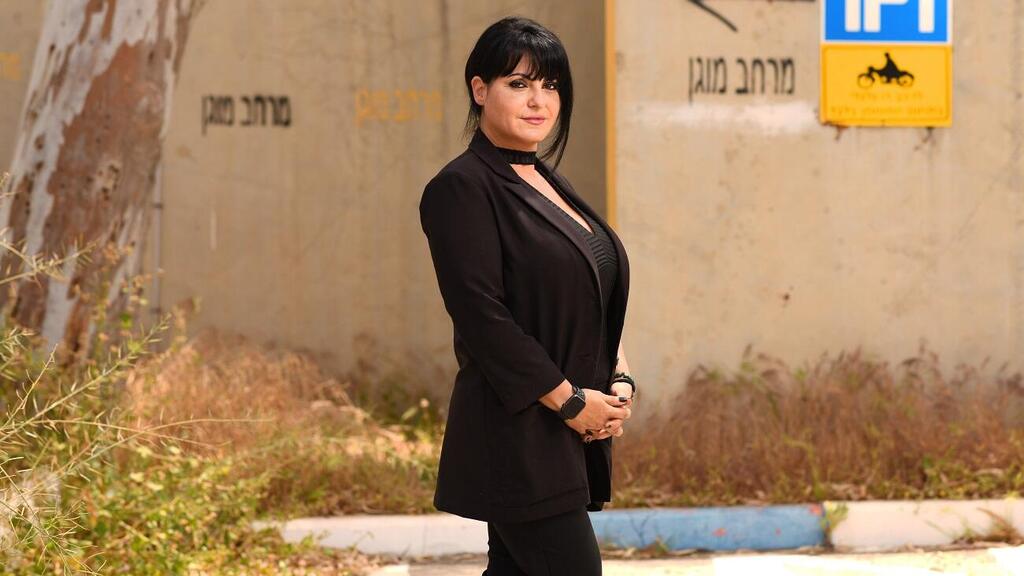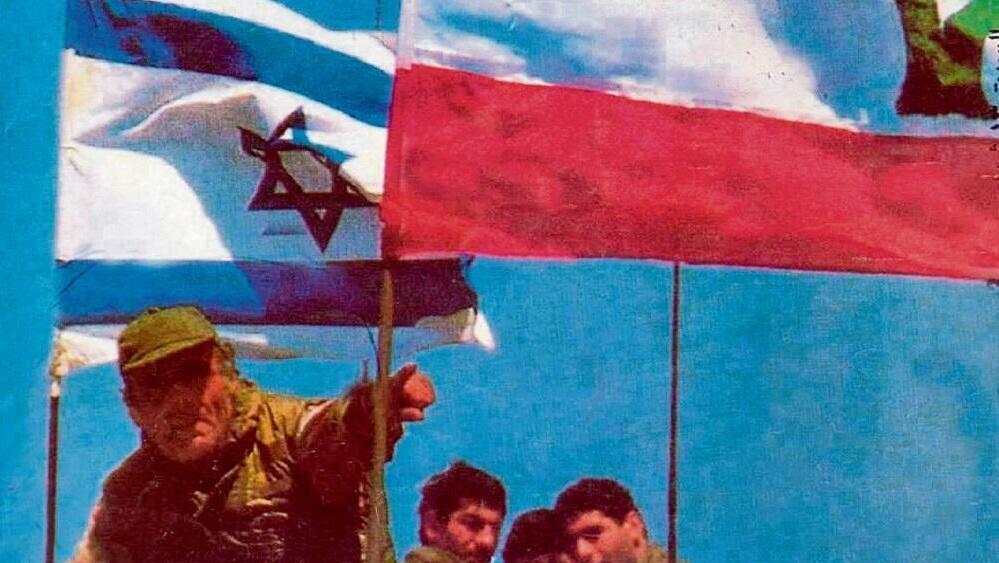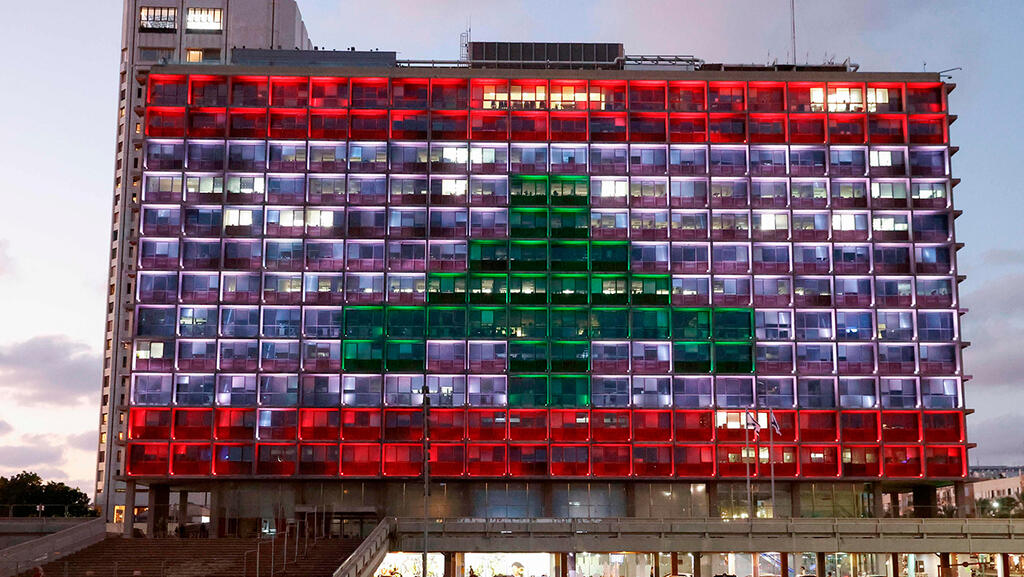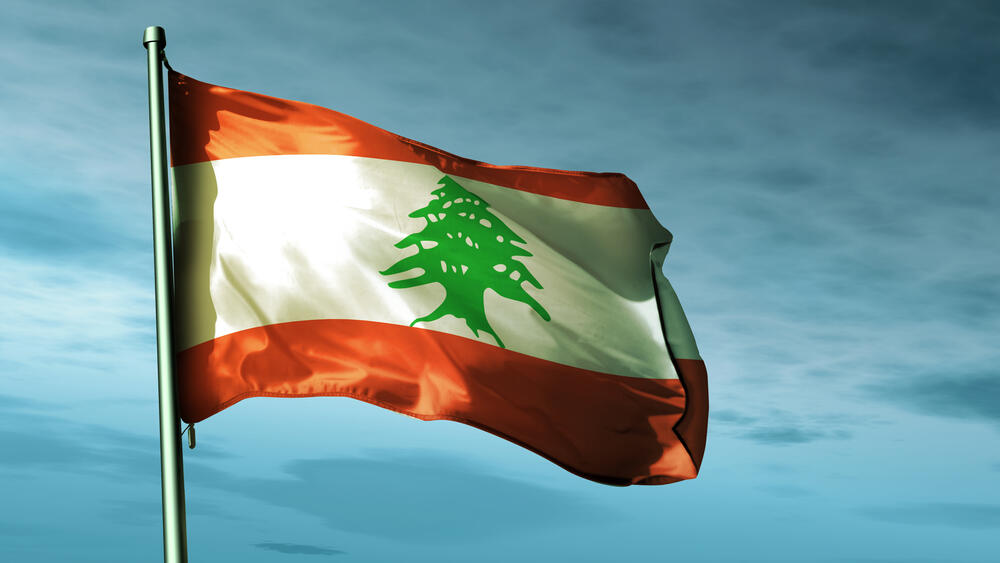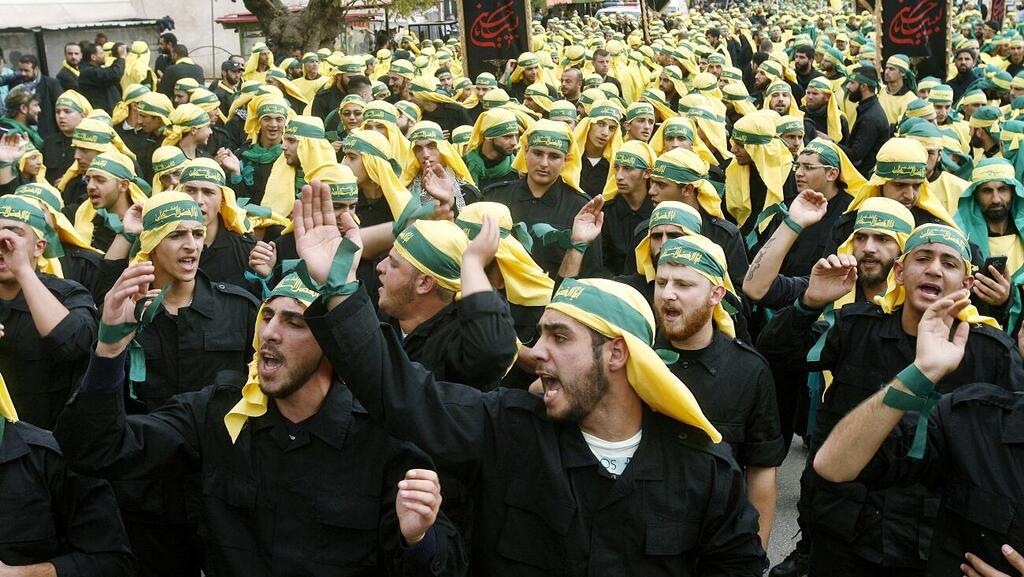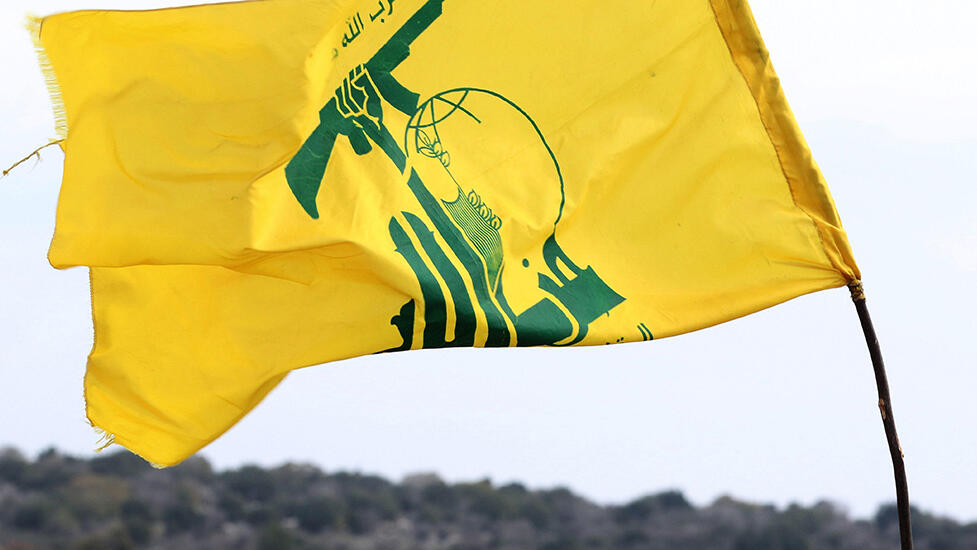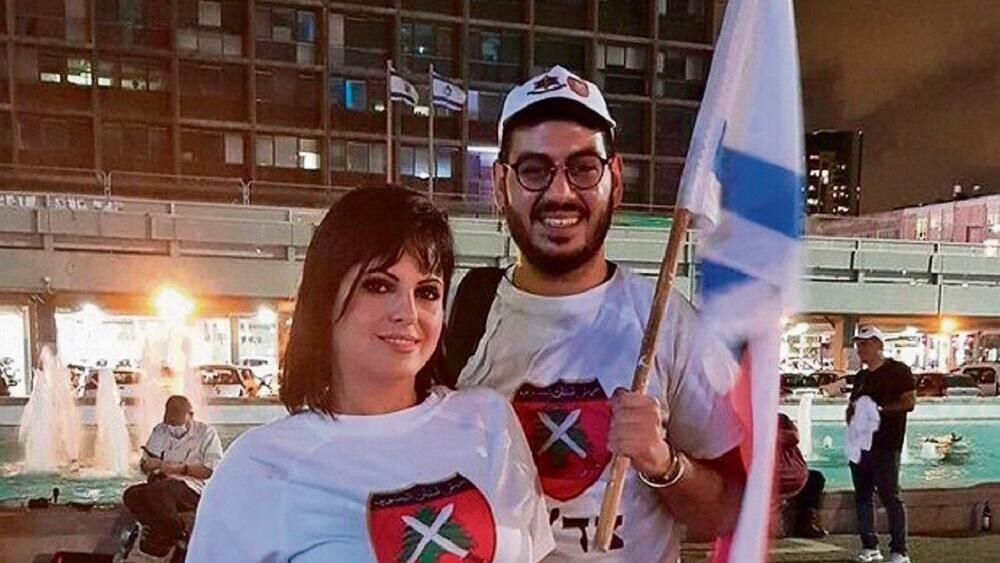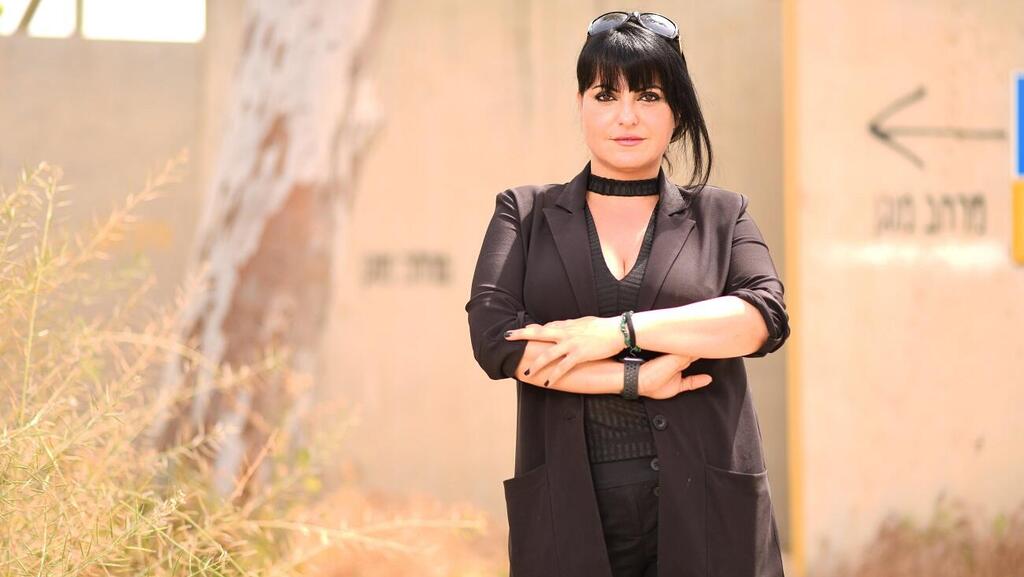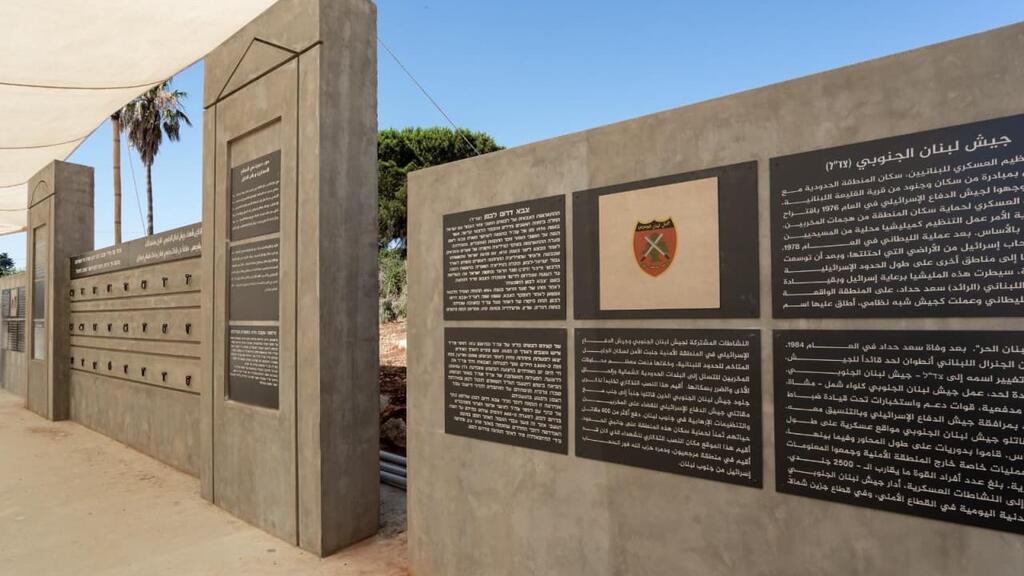As head of the digital department to the Arab world, Julie Abu-Araj is responsible for shaping messages and creating awareness in the Israeli military's war against its enemies on social media.
But for Julie, working for the IDF Spokesperson's Unit is more than just a job. She’s settling scores with Hezbollah who murdered her father, a senior South Lebanon Army (SLA) commander, and forced her family to flee. Julie describes her ongoing pain and her hopes of finding the injured IDF soldier she helped outside her house in home country.
Julie Abu-Araj vividly recalls the day the SLA left Lebanon 22 years ago. “It was very hard. I remember it as a grey day. It’s hard to describe my feeling on that day. It was all so sudden. Out of the blue, I was told ‘Let’s go. You have to leave your home, your neighborhood and your country.’ It was chaotic and confusing."
She adds: "SLA families realized that the IDF was withdrawing in a matter of hours and that Hezbollah would infiltrate the region and that they had to leave. We left with nothing, not even a change of clothes. When I said I didn’t want to leave, I was told ‘It’s just for a week. When things calm down, we’ll come back home.’ It didn’t cross my mind that we were leaving for good.”
That girl who was forced to leave her home and country is now an Israeli citizen working for the IDF as head of the digital department to the Arab world in the IDF Spokesperson’s Division. “I manage the IDF’s Arabic language social media.”
She explains: “I’m responsible for advancing projects and campaigns, and shaping messages for various target audiences. We aim to influence awareness in Arabic. Coming from a special cultural background, I have the advantage of a fundamental understanding of the Middle East. I adapt messages and ideas in Israeli Arabic instead of using the enemy’s terminology.”
Julie Abu-Araj talks about growing up in Lebanon; her father, a daring senior SLA combatant who was murdered there; crossing over into Israel; SLA’s struggle for recognition and her late mother’s personal anguish. Although she fled to Israel, her mother’s heart remained in Lebanon and, in her will, requested to be buried in Marjayoun in Lebanon - her homeland.
The Abu-Araj family is regarded as iconic in Lebanon. The family is Christian, hailing from Marjayoun, 6km (4 miles) from the Israeli border. Family patriarch, Joseph Abu-Araj, was a senior SLA commander. He served as second-in-command to Major Sa’ad Haddad (founder of the Army of Free Lebanon (AFL) later known as the South Lebanon Army (SLA).)
His daughter Julie recalls how, in 1976 with the founding of the AFL, the Lebanese government sent Haddad to ask Israel for help. “I was told that they put a note in the Israeli border fence and that’s how the SLA-IDF collaboration began.”
They wanted Israel’s help fighting the PLO which, after being expelled from Jordan, started setting up bases in South Lebanon to fire Katyusha rockets into northern Israel and carry out terror attacks.
“My father advanced in the SLA and was regarded as loyal to the ideology of defending the homeland.” Julie continues: “He was widely respected as unafraid - a real fighter. Lebanese people today still remember him as defender of the homeland. “
Joseph Abu-Araj also served as right-hand man to Antoine Lahad who commanded the SLA following the death of Major Sa’ad Haddad, and as commander of the eastern command centers in the southern sector in Lebanon.
“Whenever General Lahad was injured, or when there were attempts on is life, he’d ask my father to take care of his children in the event of anything happening to him. My father was exceptionally loyal. Hezbollah and the Palestinians sent terrorists to infiltrate the SLA to try to murder the army’s senior command.”
Julie describes her family as “fighting and courageous. They knew no peace, no security, no stability.” She continues: “I have three brothers and a sister. I was born during the Lebanon war. My father was classed as a wanted man by both the Palestinians and Hezbollah."
She adds: "You could say that our family has been constantly pursued. My father was abducted several times. He was taken from the house and was returned during various operations and military activities. This was all before I was born, but they always talked about it at home. My mother and brothers are traumatized by being constantly being chased.”
What childhood memories do you have from Lebanon?
“I grew up in a Christian home and I went to a school run by nuns. My two best friends were a Druze and a Shi’ite girl. There was an atmosphere of unity and fraternity. That’s how we were educated. But we were also growing up in the shadow of war, with ongoing bombardments.”
One particular incident is ingrained in her memory: “I was sitting on the balcony. There was a high-speed road opposite the house. A passing Israeli jeep drove over two landmines that went off. A soldier saw me at the balcony and asked me for help. I didn’t speak or understand Hebrew at the time and I ran to get my mother and the neighbors. There was a Red Cross center in the area. I ran to them for help too. On the way, I gave the soldier a blanket. I’ve been looking for this soldier ever since. Although there were other fatalities, this soldier was saved. “
In June 1998, two years before the IDF’s withdrawal from Lebanon, the family suffered a severe blow when Hezbollah murdered Julie’s father.
How was your father murdered?
“Hezbollah, who knew my father was a key figure in the SLA command, decided to murder him. After several unsuccessful attempts, Hezbollah recruited and handled one of our neighbors. He asked to join the SLA. As his brother was an SLA combatant, he was accepted. My father had his suspicions, but didn’t think he’d dare to actually do anything. Then one day, he murdered my father along with four of his men. My father was 50 when he died.“
One day two years later, we hastily fled Lebanon. “My clearest memory of that day is of Hezbollah flags everywhere. I wasn’t afraid. I just felt that I was forsaking my home into the hands of our murderous enemies. It’s still hard for me to describe my feelings on that day. The SLA didn’t expect the IDF to ever leave South Lebanon. It was enormously disappointing, especially for the first generation – the older people, but crossing into Israel was still better than staying in South Lebanon ruled by Hezbollah.”
The Abu-Araj family lived initially in Kibbutz Kabri about 10 km (6 miles) from the Israel – Lebanon border, and later moved to Nahariya where Julie attended a Jewish high school.
What happened to your home and possessions that you left behind in Lebanon?
“Hezbollah set fire to our house and all our possessions. They insisted on flying their flag over our house. As it was my father’s house, it was an SLA symbol. Some families still have houses in their parents’ names and they’ve managed to keep their homes. For families like ours however, there’s nothing left of the homes - they were burnt down by Hezbollah.”
Are you in contact with relatives still living there?
“There are SLA families in Israel who are in contact with their families in Lebanon. Some are too afraid. We’re still in touch with some friends and family there – but we have to be careful. My girlfriends in South Lebanon cut off all contact with me. We communicate with relatives by social media. It’s the only way to keep in touch.”
Following high school, Abu-Araj went on to study Communications and Political Science at the Hebrew University in Jerusalem. She was accepted onto the Israel Broadcasting Authority’s (IBA) Arabic language journalists’ course and began working for I24NEWS. She also wrote for Lebanese and Israeli websites, giving a voice to SLA veterans who are often subject to negative press in the Arab world, branding them “traitors.”
She is employed as a civilian journalist by the Coordinator of Government Activities in the Territories (COGAT), taking over the position from Gen. (Res.) Yoav “Poly” Mordechai. As a child in Lebanon, she knew Mordechai as “Captain Ayyub” from the 504 Intelligence unit which frequently collaborated with her father.
After setting up the COGAT Arabic language Hasbara department, Abu-Araj started working for Israel’s police force where she was one of the founders of the Arabic language new media department which she also managed.
In addition to her work at the IDF’s Spokesperson’s Unit, she also serves as the spokesperson for the South Lebanon Army Veteran’s Association. The organization, represents 3500 former SLA combatants now living in Israel who fought alongside Israel against a common enemy. Many of them are still being chased by Hezbollah.
In this role, she’s also spearheading a campaign for symbolic recognition for SLA fallen soldiers. Although families of fallen SLA combatants receive stipends from the State of Israel, they are not represented at the Ministry of Defense’s memorial sites. The association believes that the blood-stained SLA-IDF alliance warrants SLA fallen soldiers’ inclusion as fallen soldiers of the State of Israel and should be mentioned on memorial days.
SLA veterans settled in Nahariya, Tiberias and Kiriyat Shmona.
After so long, are you still socially connected?
“There’s a third generation which still keeps its Lebanese identity. The first generation of older people are still longing for their homeland. They keep up their Lebanese culture and traditions. The second generation live both here and there. They continue the SLA tradition and carry out hasbara for the SLA. The new generation is totally Israeli. There are Lebanese social gatherings, especially in church. Many SLA veterans who saw Hezbollah take control of Lebanese state institutions think it’s good they left.”
It was hard for Julie’s mother to come to terms with leaving her homeland. “My mother died four years ago. In her will, she asked to be buried in her village in Lebanon. It was hard for her to leave Lebanon where she’d spent over half her life. Following a complex arrangement through relatives and the Red Cross, her remains were taken into Lebanon for burial. We held a burial service in Akko and then further service was conducted in our absence in Lebanon. Respecting her wishes, she was buried in her own land.”
What do you think about people saying that “the Third Lebanon War” is just a matter of time?
“I don’t know if war is on the cards or not right now. What I do know is that it’s not the government but Hezbollah that decides whether there’s a war. Hezbollah makes these decisions in accordance with Iranian interests. To understand what happens on the border, you have to delve into the Iranian issue and all its implications."
She adds: "After the Second Lebanon War, Hezbollah prescribed a defensive policy, thinking twice before attacking Israel. Every now and then there’ll be a security provocation, but it’s a message targeted at the Lebanese people, proclaiming to them ‘We’re here. The ammunition is aimed at the Israeli enemy, not at you.'"


